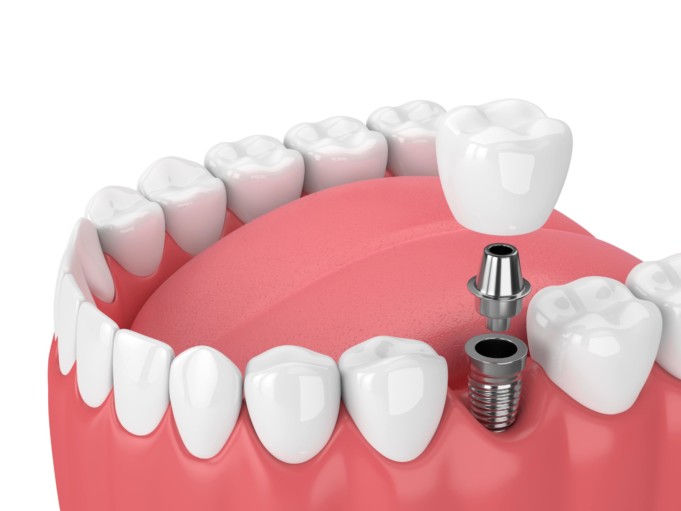Ever wondered why people fear dentists? It might be because people fear that a simple cleaning may turn into a root canal or any other dental procedure. Likewise, dental implants may sound scary, but they are actually quite helpful and essential for your teeth health.
A dental implant is a replacement procedure for tooth roots that provide a strong foundation for your permanent or removable teeth. Upon the dentist’s recommendation, you need to get dental implants, and you can’t afford to delay the procedure.
Such implants are a perfect replacement for your natural teeth ensuring your teeth’ health.
Why Is It Important to Get A Dental Implant?
Dental Implants are a complicated dental procedure and may require you to undergo intricate processes. If you want quality dental care in New Zealand, you can reach out to boutique dental practices such as Dental Artistry.
Not only do they ensure adequate dental procedures but they also provide lifelong oral health recommendations. Dental implants are not just a teeth replacement; they are a one-stop solution for your refreshing look, teeth, health, and functionality.
Dental Implants maintain and strengthen your teeth bone structure, provide you with the ability to chew healthy food and give you the confidence to smile. Additionally, they protect your existing teeth by helping to preserve bone structure.
When to Get A Dental Implant?
For the sake of your own teeth health, you need to know precisely when to get a dental implant. As a self-check, you may need a Dental implant if you:
- Have one or more missing teeth
- Want to improve your bone structure
- Can’t wear dentures
- Want to improve your speech
Why Do You Need Dental Implants?
As a filter, anyone who can undergo a routine dental extraction or oral dental surgery can experience a dental implant. But to undergo a dental implant, you need to have strong gums, healthy bone structure to hold the implants and must be committed to maintaining good oral hygiene.
If you are a heavy smoker or suffer from a chronic disease, disorders like heart and diabetes, your implant may have complications. Therefore, you have to seek expert dental advice on whether you’re capable of getting an implant or not.
Benefits of Dental Implants
Improve Your Speech
Poor-fitting dentures can cause teeth to slip, impairing your speech. Dental implants allow you to speak effectively.
Makes Eating Easier
With Sliding, dentures, chewing can be painful. Dental implants function like your own teeth, enabling you to eat your favorite foods with confidence and, more importantly, without pain.
Improves Your Self-esteem
Dental implants are just like your own teeth. They are designed in a way to fuse with your bone structure, and eventually, they become permanent. They provide you with comfort because they become a part of you. Implants eliminate the discomfort of removable fittings and dentures.
They can give back a smile you have been missing all along. They help you feel better about yourself and your surroundings.
Improve Your Oral Health
Dental implants don’t require eliminating your other teeth like a tooth-supported bridge. While performing a dental implant, nearby teeth do not alter to support the implant; in fact, more of your teeth are intact. They further improve long-term oral health.
Durable and Convenient
Dental implants are incredibly durable and may last for many years. With proper dental care and appropriate maintenance and many dental implants, almost last a lifetime.
Removable dentures are just removable. On the contrary, dental implants eliminate the need for removing dentures. They also don’t need messy adhesives to keep them intact.
How Painful Are Dental Implants?
Contrary to the popular perception, dental implants are not that painful unless complications arise, such as lack of bone structure or strength during implant.
Dentists usually administer local anesthesia, which results in less pain at least less than a tooth extraction.
If you are suffering from mild discomfort after the implant procedure, you have to take OTC (Over the counter) pain relief medications or, preferably, contact your practitioner immediately.
What To Do After A Dental Implant?
- Avoid straws for 24-hours or more after the surgery.
- Expect minor swelling for 2 to 3 days after the implant.
- Rinse your teeth and mouth with salt water 3 to 4 times daily until a few days after.
- Avoid eating overly hot food in the first 48 hours of the surgery.
- Take a liquid diet only for at least 24 to 48 hours.
- Avoid smoking for at least three days following surgery.
- Use Tylenol® or any other OTC medicines for any discomfort.
Conclusion
Remember that the ultimate objective of a dental implant is not a perfect smile and teeth structure; it’s your overall health. Dental implants are essential to restore your dental health.
And even after the process, you are responsible for looking after your dental health. Before undergoing a dental implant, make sure that you’re orally healthy enough to go through the procedure.












